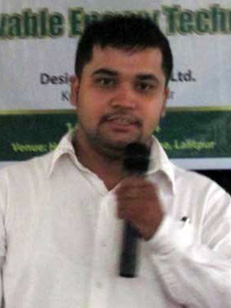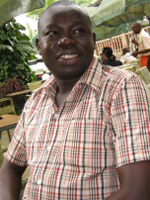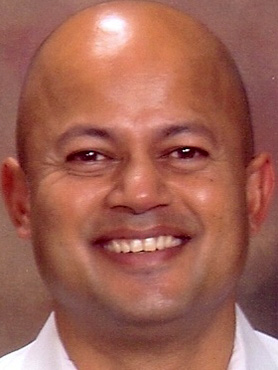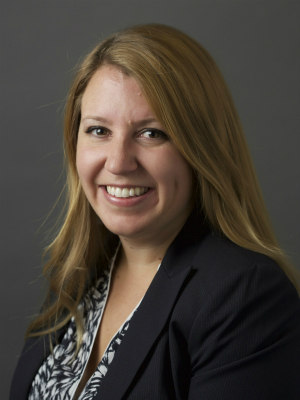23 June 2015
View Webinar Content
Presentation—Introduction to the webinar and panelists
Presentation—Yasemin Erboy Ruff: Energy Access in Humanitarian Settings: Examples from Recent Crises
Presentation—Dinesh Tripathee: Quick Relief, Reconstruction and Rehabilitation Package for Earthquake Victims in Nepal
Presentation—Sandeep Giri: Energy Access in Humanitarian Settings: Nepal Earthquake
Presentation—Wani James Henry: Energy Needs in a Humanitarian Setting: The South Sudan Experience
Presentation—Corinne Hart: Improved Cooking Solutions in Humanitarian Settings: Ensuring Access for the Most Vulnerable
Transcript—Webinar audio transcript
The Clean Energy Solutions Center, in partnership with the UN Foundation’s Energy Access Practitioner Network, the Global Alliance for Clean Cookstoves, and the Safe Access to Fuel and Energy (SAFE) Steering Committee, hosted this webinar on energy access in humanitarian settings. It showcased the relevance of high-quality decentralized energy solutions for lighting and cooking in response to crises involving refugees, internally displaced persons, and those affected by natural disasters. This webinar is part of the broader work that the UN Foundation is undertaking on energy access within the UN and the World Bank’s Sustainable Energy for All initiative.
Electricity for lighting, communicating, and powering essential equipment can improve safety and living conditions in humanitarian settings, ensuring that surgeons can perform emergency surgery through the night, that health centers are able to store vaccines and blood, and that children have the opportunity to study after dark. Fuel-efficient cookstoves and cleaner fuels can improve respiratory health, help protect women from the dangers they face when collecting firewood from unsafe locations, and enhance nutrition by ensuring families don’t have to exchange half their food ration for cooking fuel.
The speakers in this session highlighted the role sustainable decentralized energy solutions can play in humanitarian settings, focusing specifically on the recent Nepal earthquake. The participants discussed quality approaches and shared lessons learned and best practices for settings in need of aid-based approaches where the local market may be disrupted or indefinitely suspended, at least in the short term.
- Dinesh Tripathee, Engineer, Biomass Energy Sub Component (NRREP), Alternative Energy Promotion Centre (AEPC), Ministry of Science, Technology and Environment, Government of Nepal, will provide an overview of the importance of energy access for humanitarian settings, touching on both electrification and clean cooking, and will share examples of AEPC’s experience in this regard, focusing on the Nepalese government’s coordination efforts around the recent earthquake.
- Sandeep Giri, CEO, Gham Power, will reflect on the recent Nepal earthquake on behalf of all Energy Access Practitioner Network members coordinating or leading relief efforts and share latest developments and lessons learned via Gham Power’s live map showing all incoming requests for relief specific to power and electricity and illustrating where work is being done to coordinate solar companies and relief agencies.
- James Wani, Natural Resource Officer, the Food and Agriculture Organization (FAO) of the United Nations South Sudan office, will cover the clean-cooking aspect by elaborating on FAO's role on the SAFE Steering Committee and the organization’s work on biomass fuel and cookstoves in humanitarian settings.
The presentations will be followed by an interactive Q & A session with the audience. If you cannot attend in person, you can follow the live Tweets via #PNwebinar.
Panelists
 Yasemin Erboy Ruff, Officer, Energy and Climate
Yasemin Erboy Ruff, Officer, Energy and Climate
Yasemin Erboy Ruff is an Officer with the UN Foundation's Energy and Climate team, primarily assisting in coordinating efforts to scale up energy access in developing countries. She manages the day-to-day operational coordination and strategic planning of the UN Foundation’s Energy Access Practitioner Network, and serves as the Energy and Climate team's focal point for research and writing support on materials related to the energy access issue area. Prior to joining the UN Foundation, Yasemin majored in environmental science at Columbia University and gained her master's degree in environmental management at the Yale School of Forestry and Environmental Studies, with a focus on climate change and resource management.
 Dinesh Tripathee, Civil Engineer
Dinesh Tripathee, Civil Engineer
Dinesh is a civil engineer with a sound knowledge in the energy sector. He has ample knowledge of working with the private sector as well as government agencies involved in the energy sector. With about eight years of professional experience, he has been able to ensure efficient and effective implementation of energy projects in Nepal. Dinesh received a master’s degree in water resources engineering from the Tribhuvan University Institute of Engineering and a bachelor’s degree in civil engineering from the Purbanchal University Acme Engineering College.
 Wani James Henry, Natural Resource Officer, FAO
Wani James Henry, Natural Resource Officer, FAO
Mr. Henry has over seven years of experience working as a natural resource officer with FAO in the rural communities of South Sudan. He has developed rich experience in addressing rural development issues related to access to energy, including issues related to the thousands of refugees returning to South Sudan after fleeing from the protracted war between the South Sudanese and the Sudan government in Khartoum. Mr. Henry holds a Bachelor’s degree in Community Forestry with a major interest in agroforestry from Makerere University-Uganda. Before joining FAO, he worked with a national forestry training center as a coordinator for an outreach programme and as an Agriculture & Livelihood Specialist with ACDI-VOCA implementing a USAID programme in South Sudan. Since the onset of the current conflict in South Sudan, he has been involved in developing SAFE initiatives in order to respond to the current humanitarian crisis that has resulted into massive displacement of thousands of South Sudanese internally. Together with the FAO natural resource management unit (Climate, Energy and Tenure division in Rome), Mr. Henry has been involved in developing a Fuel Efficient Stove programme to respond to the crisis related to access to wood-fuel energy by the Internally Displaced Peoples.
 Sandeep Giri, CEO, Gham Power
Sandeep Giri, CEO, Gham Power
Sandeep is the CEO of Gham Power, an off-grid solar PV company developing microgrids and productive end use projects to enable energy access. Originally from Nepal, Sandeep has studied in the United States and has launched multiple technology companies in San Francisco Bay Area. Previously, he was the CEO of a marketing analytics software company, which is now a part of Oracle. Following his passion for clean technology, Sandeep founded Gham Power in 2010, which has deployed over 600 projects in Nepal, and he is now developing a platform to aggregate high ROI off-grid projects into investment funds. Sandeep has a Master’s in Computer Science from the University of Nebraska, and he completed a certificate program in Solar Energy at the University of California at Berkeley.
 Corinne Hart
Corinne Hart
Corinne Hart is the Director of Gender and Humanitarian Programs at the Global Alliance for Clean Cookstoves. She designs and manages the alliance’s strategies and programs on gender, women’s empowerment, and humanitarian response. Ms. Hart also manages the alliance’s gender research grants and develops tools and resources to increase the capacity of cookstove and fuel businesses to include women in the livelihood opportunities created through these value chains. In humanitarian settings, Ms. Hart is leading the alliance’s work to ensure the available supply of improved cookstoves for immediate deployment in emergency response to reduce vulnerability to gender-based violence and malnutrition that can result from limited access to cooking fuel. She serves on the Strategic Advisory Committee for the UN High Commissioner for Refugees’ Global Strategy for Access to Energy.
